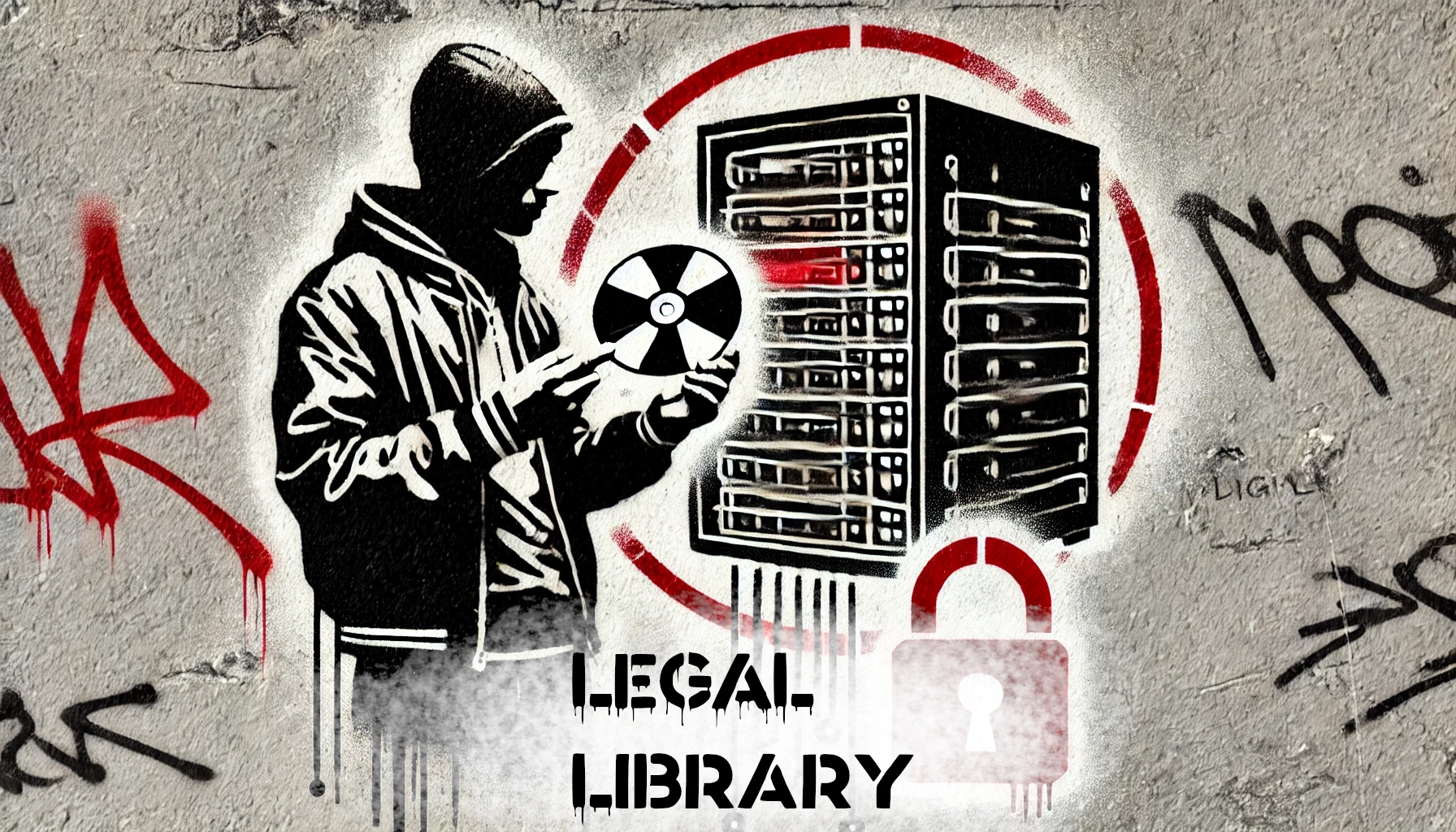Building Your Own Legal Media Collection
Staying Within the Bounds: How to Build a Media Library Without Breaking the Law

Building a home media server lets you create your own personal Netflix, but it’s important to stay within legal boundaries when adding shows and movies. Sure, you might be tempted to don your pirate hat and sail the high seas for content, but it’s crucial to understand the risks that come with that choice.
Legal Implications of Pirating Media
Civil Lawsuits: Copyright holders can sue individuals or entities that illegally distribute their content. These lawsuits often result in hefty financial penalties.
Criminal Charges: In serious cases—especially those involving large-scale piracy or financial gain—criminal charges can be filed, leading to significant fines and even jail time.
Statutory Damages: Under U.S. copyright law, penalties for infringement can range from $750 to $30,000 per work. If the court finds the violation was willful, that amount can shoot up to $150,000 per work.
Examples of Fines and Penalties
Recording Industry Association of America (RIAA) Lawsuits: In the mid-2000s, the RIAA filed thousands of lawsuits against people who illegally downloaded music through peer-to-peer networks. Settlements often ranged from a few thousand to several thousand dollars per person.
Movie Studios and Copyright Groups: Like the RIAA, movie studios and copyright enforcement groups have gone after individuals and piracy websites. Settlement amounts vary but typically cover lost revenue and legal fees.
High-Profile Case Examples:
BMG v. Cox Communications: In this landmark case, Cox Communications was found liable for copyright infringement by its users, resulting in a $25 million judgment in favor of BMG.
Capitol Records v. Thomas-Rasset: Jammie Thomas-Rasset was fined $222,000 for downloading and sharing 24 songs on Kazaa. After multiple appeals, the fine amount fluctuated but served as a cautionary tale about the high cost of piracy.
Legal Methods to Add Content to Your Media Server
Digital Marketplaces
Buy or rent movies and shows from platforms like Amazon Prime Video, Google Play Movies, and iTunes. Some allow offline downloads, but they’re typically DRM-protected, meaning you can’t easily move them to your media server. Always check the terms of service for DRM-free options.
Physical Media (DVDs and Blu-rays)
Buying physical DVDs and Blu-rays is a straightforward way to legally obtain content. You can use tools like MakeMKV and HandBrake to rip and compress them for your media server. This is generally legal for personal use, but be sure to check your local laws to stay compliant.
Public Domain and Creative Commons
Some movies and TV shows are in the public domain, meaning they’re free to use without permission. Websites like Public Domain Movies and the Internet Archive offer these films. Additionally, some creators release their work under Creative Commons licenses, allowing free legal distribution under specific conditions.
Special Offers and Bundles
Look for deals on digital marketplaces. Services like Humble Bundle sometimes offer digital movies and documentaries at pay-what-you-want prices, making it a cost-effective way to legally acquire content.
Free Streaming Services
Platforms like Pluto TV, Tubi, and Crackle offer free, ad-supported streaming. Although they typically don’t allow downloads, they’re a legal and free way to enjoy content. Some services offer temporary downloads for offline viewing.
Library Services
Platforms like Hoopla and Kanopy partner with local libraries to provide free streaming of movies and TV shows. You’ll need a library card from a participating library. Although you can’t download files directly to your server, these services expand your legal viewing options for free.
Second-Hand (Used) Media
Buying used DVDs and Blu-rays is a cost-effective and legal way to grow your collection. Here are some great places to find second-hand media:
Local Thrift Stores and Garage Sales
These are goldmines for finding DVDs and Blu-rays at low prices. You might even come across rare or out-of-print titles. Just make sure to check the discs for scratches before buying.
Online Marketplaces
Websites like eBay, Craigslist, and Facebook Marketplace are great for buying used media. You can often find large collections at reasonable prices. Make sure to check seller ratings and reviews for reliability.
Used Bookstores and Media Shops
Many used bookstores also sell DVDs and Blu-rays, often inspecting them for quality. Specialty shops focusing on used media also provide peace of mind by guaranteeing that the discs are in working order.
Library Sales
Sometimes libraries sell off older DVDs and Blu-rays to make room for new inventory. These sales are great for finding cheap movies while supporting your local library.
Tips for Buying Second-Hand Media
- Inspect Before Buying: Check the disc for scratches or defects.
- Check for Completeness: Make sure the original case, cover art, and inserts are included if they matter to you.
- Be Patient: Finding specific movies can take time, so check regularly.
- Negotiate: Especially at garage sales or on online platforms, negotiating can save you even more money.
Once you’ve bought your second-hand media, you can rip the content using MakeMKV and compress it with HandBrake if needed. This gives you a legal, personal collection for your media server.
Best Practices
Always Check the License: Make sure any digital content is either DRM-free or that you’re allowed to convert it for personal use.
Stay Informed: Copyright laws vary by country and can change, so stay up to date on what’s legal in your area.
Support Creators: Buying content directly from creators or through official channels ensures they get compensated, helping to sustain the industry and encourage more great content.
By following these guidelines, you can build an impressive and legal collection for your home media server. Remember, the goal isn’t just to gather a massive library—it’s about curating and organizing your collection, discovering new favorites, and revisiting classics while respecting copyright laws and supporting the creators you love.

